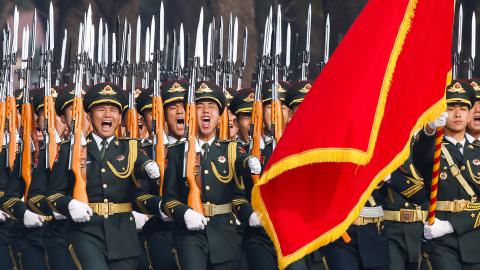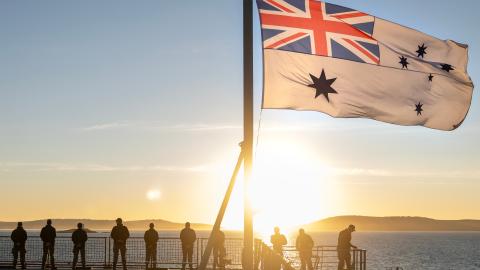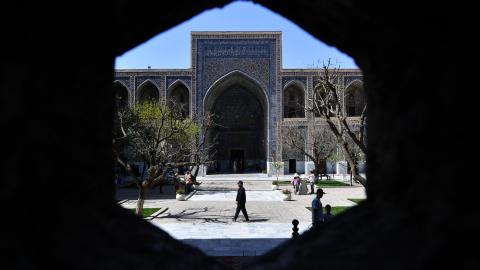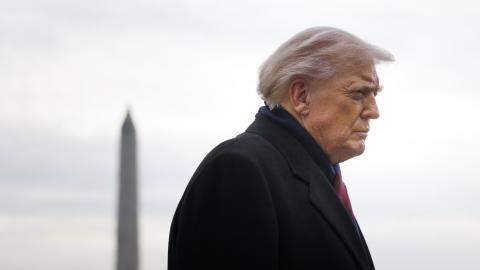Ambassadors from the 15 U.N. Security Council member states have begun a fact-finding mission to assess the current situation in Kosovo. The mission is expected to visit the Serbian capital of Belgrade from April 25-26, the Kosovo capital of Pristina from April 27-28, and then Brussels, where the ambassadors will confer with NATO and EU leaders. Upon returning to New York, they will report their findings to the Security Council.
The council is currently deliberating whether to implement the recommendations on Kosovo's status offered by U.N. Special Envoy Martti Ahtisaari last month. Ahtisaari's Comprehensive Proposal does not explicitly advocate granting Kosovo independence, but it certainly tilts in that direction.
The lengthy report contains certain provisions limiting Kosovar self-determination. For example, it would forbid the province from ever joining Albania. The proposal would also establish an international civilian overseer with powers to intervene in local government affairs and continue NATO's military and the EU's policing roles. Finally, it would enshrine protections for Kosovo's Serb minority by guaranteeing them roles in government, the civil service, and law enforcement as well as ties with neighboring Serbia. Nevertheless, the draft proposal would grant Kosovo its own flag, anthem, constitution, armed forces, and representation in international organizations—all features characteristic of sovereign countries.
The leaders of Kosovo's ethnic Albanian majority say they will back Ahtisaari's proposals provided they leads to Kosovo's eventual independence. Most EU governments (with some wavering in Cyprus, Greece, Slovakia, and Spain) also endorse the plan. Representatives of the province's Serbian minority, which constitutes less than 10 percent of Kosovo's two million inhabitants, strongly oppose it. The most important political figures in the neighboring country of Serbia, which still claims control over Kosovo, have also denounced the proposal. Following weeks of fruitless discussions aimed at overcoming these differences, Ahtisaari last month called on the U.N. Security Council to implement his recommendations as the "only viable option."
Russian government officials vehemently disagree. Foreign Minister Sergei Lavrov called the Ahtisaari plan "absolutely unacceptable," characterizing it as an attempt to impose a one-sided solution to the Kosovo issue. Russian representatives insist that an enduring settlement will require the support of all the parties. Citing continuing Serbian opposition, Russian officials have called for launching a new round of talks aimed at finding a more acceptable compromise. The Russian delegation proposed this month's Balkan fact-finding mission.
Alluding to Russia's powers as a permanent U.N. Security Council member, Russian Deputy Foreign Minister Vladimir Titov observed, "The threat of a veto should stimulate the search for mutually acceptable options." Russian political leaders and policy analysts have cautioned that Ahtisaari's plan could set a precedent for resolving separatist disputes in other countries, including Georgia and other former Soviet republics. In February 2007, Defense Minister Sergei Ivanov warned that Kosovo's independence could "create a chain reaction" throughout Europe and would "open Pandora's box."
In contrast, the U.S. government has formally endorsed independence for Kosovo. Last week, Under Secretary of State Nicholas Burns announced that the Bush administration would cosponsor a new resolution in the Security Council that would implement the Ahtisaari recommendations. Burns argued that, given the deep divisions separating the parties, delaying action would not improve the prospects for a settlement and would only increase the risks of ethnic violence. He subsequently suggested that, even if Russia vetoed the Ahtisaari plan, the United States would recognize Kosovo's independence because it would become "inevitable" once the U.N. removed existing legal and political impediments. Kosovar nationalists say they will move to declare the territory's independence by June whatever the Security Council decides.
When NATO intervention forced the Serbian military to withdraw from Kosovo in 1999, the parties decided to postpone the divisive question of Kosovo's independence. U.N. Security Council resolution 1244, which ended the fighting, defined Kosovo as a U.N. protectorate under the administration of the United Nation Mission in Kosovo (UNMIK). Yet, the resolution also allowed for locally based provisional institutions of self-government and affirmed that Kosovo was an autonomous political entity of the Federal Republic of Yugoslavia, legally succeeded by the Republic of Serbia. NATO's 16,000-personnel Kosovo Force (KFOR) and a 1,000-man EU police force unit continue to enforce security in the territory.
Since 1999, various international negotiations as well as less formal mediation efforts have proven unsuccessful in resolving Kosovo's status. Violent ethnic rioting in March 2004 compelled the international community to step up these efforts. In October 2005, the U.N. Security Council authorized Ahtisaari's appointment as a special envoy empowered to offer his own proposal for Kosovo's future. Starting in February 2006, he began extensive consultations with representatives of the Kosovo Albanians, the Kosovo Serbs, the leading actors in Serbia, and foreign governments and international experts. In February 2007, he issued his draft report.
The extent to which developments in Kosovo challenge European stability depend heavily on the policies of the Serbian government. The historical ties between Serbia and Kosovo, as well as domestic political calculations, will make it difficult for Serbian leaders to agree to Kosovo's formal independence. Nevertheless, foreign inducements—especially generous EU aid packages for Kosovo and Serbia combined with initiatives to integrate both parties deeper into EU processes—might eventually persuade the Serbian government to confine its opposition to verbal protests. When asked how Serbia would respond if the EU and the United States were to recognize Kosovo's independence, Serbian President Boris Tadic said there were "a whole list of diplomatic and political initiatives that Serbia could take in such a bad scenario," but Belgrade would not place itself at "war against the world."



















